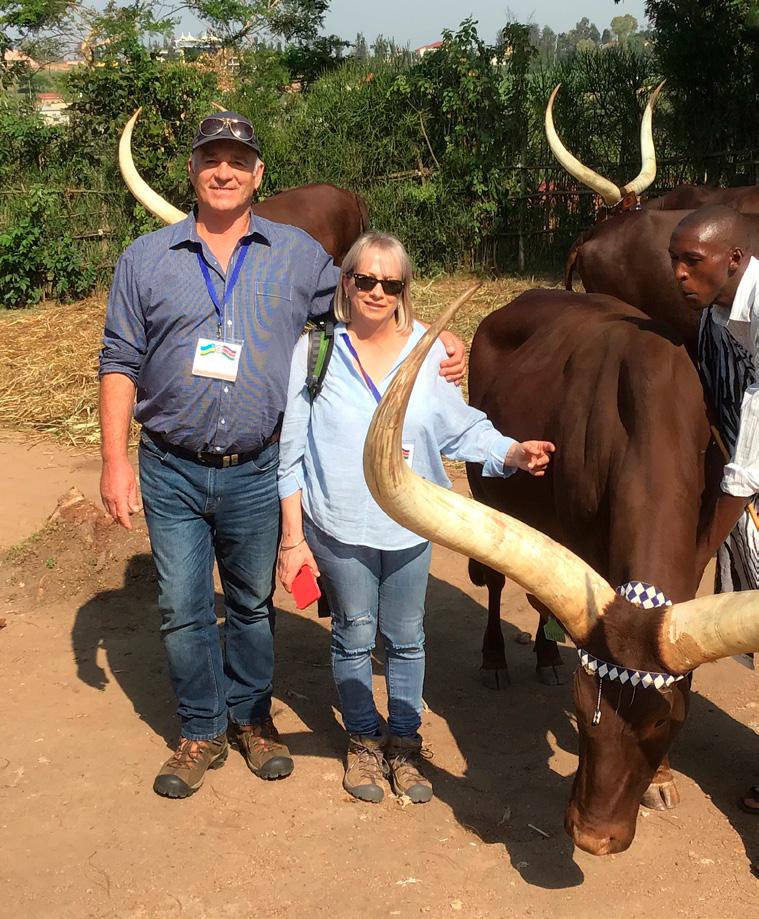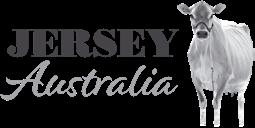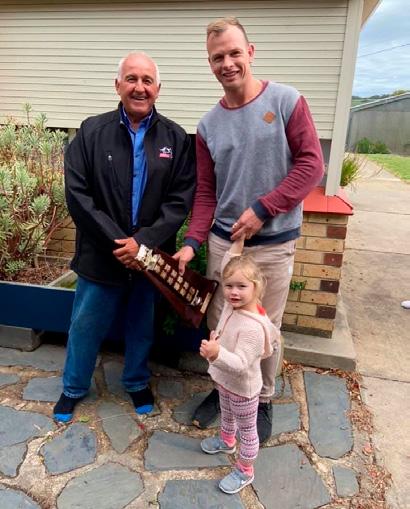
7 minute read
The Sweet Smell Of Delayed Success
WORDS // RICK BAYNE
Andrew Marks has hardly been an overnight success in cattle showing, but the eventual rewards have been sweet.
Advertisement
Andrew farms at Dorrigo, about an hour inland from Coffs Harbour, in a family-owned and run business with his wife Natalie and his father Warwick. He’s the fourth generation to farm the land.
His interest in cows goes back as long as he can remember, or even further.
“I can’t remember when I first started showing dairy cattle; I’d guess it was around eight or 10,” he said.
“I was always active on the farm from four or five years old. I was with dad all the time, the same as my young bloke is now. He’s five and he’s often in the tractor with me.
“It’s how you learn. The only way I learned was from watching dad. I’d see him do things a hundred times and think I could have a crack at that.”
Andrew admits he didn’t have a lot of success in the early years of showing, but he’s hit a rich vein of form in recent years.
“I make the joke now that it’s taken me 20 years of standing at the bottom of the line to get to the top end of the line,” he said.
This year at International Dairy Week the family’s Winvarl Jersey Stud showed one cow they owned and another in partnership with Simon and Tekoa Atkins of Oakleigh Downs Jerseys, Kingsvale Premier Madge, who won and was best udder in the five-year-old class and was also reserve champion at the Jersey State Show in 2019. Winvarl Plus Diamond was seventh in a class of 14 at IDW.
“We were happy with that because it was one of the strongest classes,” Andrew said.
In 2018 in the Jersey Australia On-Farm challenges they had three
Winvale Plus Diamond scored well at IDW 2020.
class winners in the Great Northern Challenge, Mikandan Barnabas Mabel 2390 won the 3-year-old class, Winvarl Plus Diamond won the 4-year-old class and Mikandan Surefires Mabel 2190 won the Mature cow class and was supreme champion of the Great Northern Challenge. Diamond went on to become the Great Australian fouryear-old.
“I’ve really concentrated in the past four or five years on my breeding program, the bulls I use and I’ve brought in a few cows with good genetics from herd dispersals,” Andrew said.
“I’ve been looking for cows that are positive index for milk, positive stature, chest-width and cows with high-indexing udders.”
He uses “a bit from all of the companies” when it comes to genetics. “I do my own thing; try to pick the best of everything.”
The COVID-19 pandemic has put a hold on showing this year. “We should be at the Sydney show at the moment,” he laments.
The virus has also stalled Andrew’s training to become a Jersey Australia classifier, although he plans to continue in the field.
“I was suggested by one of the other classifiers,” he said. “A few classifiers are going out of dairy or looking to retire, so they’re looking to bring in a few younger blokes.”
Andrew was keen to take up the option. “It’s good for my own learning; the day you stop learning is the day you might as well give it all away.
“It’s good to get out and about and see different cows and different bulls getting used.
“You might be going to a farm to look at cows but you’ll see something totally unrelated, maybe a bit of gear a farmer has made or the way he does something, and you think I could try that at home.”
Andrew has attended a couple of class field days, scoring cows alongside others and having results collated and assessed against other experienced judges.
However, the training was firstly curtailed by fires and more recently by the virus.
“Last spring, I was supposed to go out with another classifier to do in-thefield training but we had the fires here,” Andrew said.
“We didn’t get hit ourselves but there were fires in every direction around us. We’re in a rainforest area and the fires were burning in there. Dad could only remember a few little fires in there 40 years ago, nothing like anything we had last year.”
The fires were a “double whammy” following drought, although in some cases, the dry conditions meant no fuel for the fires to burn.
Now the virus has slowed the training. “There was a field day planned on March 20 but it was cancelled,” Andrew said. “It’s a bit of a bugger now because of the virus; we’re going nowhere at the moment.
“We’ll get back to normal eventually but I don’t think it’s going to be a very quick process. For my day-to-day farming, it’s no different me because I don’t go many other places.”
The elements have been tough for the Marks family, but they’ve adjusted to the challenges.
In the first two months of this year they had more rain than all of last year. “It was too much,” Andrew admitted. “We’ve had about 1600mm so far this year and the annual average is two metres.”
But he remains confident. “With the drier conditions, we got through okay. We got short on water towards the end of it but we had invested more in irrigation and built a couple big dams when it was dry so we have enough irrigation to keep us going. Before we were tight; now I’m confident.”
Jerseys have always been a part of the family farm.
“For our conditions and our country – it gets pretty steep here and really steep in places – they just handle the conditions better,” Andrew said.
“They don’t break down as quickly as other breeds and they are higher in fat and protein. We supply Norco and get paid fat and protein incentives.”
They milk about 200, including a few Ayrshires and Holsteins but 90 per cent of the herd are registered Jerseys.

“It was a pure Jersey herd before Natalie added a few Ayrshires because she likes them,” Andrew said.
Although they don’t herd record so don’t have exact figures, the Jersey cows are averaging around 6000 litres per lactation.
“We’re really happy with that,” Andrew said. “It’s definitely gone up every year in the past five to 10 years. We’ve done a few different things, like starting to grow corn silage and just feeding cows better.”

Andrew and Natalie with co-owners Simon and Tekoa Atkins of Oakleigh Downs Jerseys with their successful Kingsvale Premier Madge. Inset: Kingsvale Premier Madge.
They have a separate farm running a commercial beef herd. Though dairy remains the biggest operation, the last lot of steers sold fetched more than double what they were getting six years ago.
Although in his early 70s, Warwick remains very active on the farm. “He’s still the mainstay of the whole operation; he’s as fit as me, if not fitter,” Andrew said.
The Winvarl Jersey Stud was founded in the early 1940’s on family, with each letter coming from a family member’s first name.
Andrew and Natalie hope the family tradition continues, with Bailey, 5, and Matilda, 4, already keen to help around the farm.
“I hope one day they are as interested as I am,” Andrew said.

Supreme Champion Gippsland Fair 2010 Champion Cow Royal Melbourne Show 2011
& her daughter...
KINGS VILLE Lassie24 ( P ) , EX 92 Sire - T Bone 42 MTHS 7350 Litres 365 Kg F 4.8% 272 Kg P 3.7% PI 104 305 days 66 MTHS 6811 Litres 365 Kg F 5.4% 241 Kg P 3.5% PI 114 217 days cont
ET Pregnancies due by Kings Ville BASHFUL - P DAUGHTERS; Kings Ville Lassie 44 (P) by CHROME Kings Ville Lassie 34 (P) EX 90 by VOLCANO 36 MTHS 7982 Litres 393 kg F 4.9% 296 Kg P 3.7% PI 115 305 days
Our Favourites POLLED

Excited about the next generation...

KINGS VILLE Lassie39 ( P )
6th generation POLLED and sired by the #1 JPI sire Hillview LISTOWEL P Bred to Kings Ville BASHFUL - P LISTOWEL / EX 90 Volcano / EX 92 Tbone / EX 93 Ressurection EX 91 Prodigy





